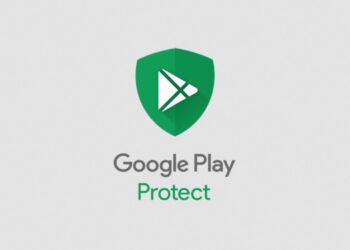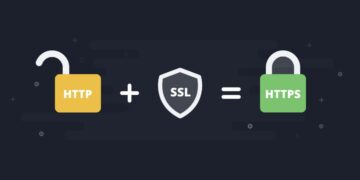Online content creation seems simple enough, but do you know that you can get in legal trouble, or at least risk causing harm to others. The content creator carries personal and full responsibility for the materials they post online, no matter the form, and in some jurisdictions they may be liable for civil or criminal suits should those materials contravene the law. Many countries are now enacting laws to ensure that online spaces are regulated to tame online behaviours and prevent far-reaching implications.
Though blogging is different from journalism academically, bloggers and online content creators are bound by the ethical considerations that apply to journalists to ensure that they inform, educate and entertain within the conformity of the law. As an online content creator – whether it be as a blogger, a video blogger, a podcaster, a microblogger or a general social media participant – you are an important part of the wider public knowledge creation and discussion.
The role of online content creation carries with it a responsibility to be fair, honest and respectful not only toward your fellow members of society but also toward fact. The content you create today will more than likely outlast both the content’s relevance and your own lifetime and it is of vital importance that it be a truthful representation of the topic at hand not only for those who access it today but for those who access it in the distant future.
Here are some ethical notations that bloggers, social media users and online content creators should strive to uphold.
1. Copyright and credit
When using photos, graphics, illustrations, video, audio or any other type of content always credit the original creator. Give proper attribution when using, quoting or basing your content on the work of others. Present quotes as quotes, link to original articles, give photo and illustration credit to the original creator etc. Not everyone has the skill and the time to create every last bit of content from scratch. If you don’t, make sure you’re using images correctly. Your only legitimate ways to gather images for your online platform are:
- Create the photo or graphic yourself.
- Use paid or free stock photography with an appropriate license.
- Get permission from the content creator to re-use their work.
If you’re putting any kind of content on your blog, social media or any other online platform that you haven’t created yourself, you should both ask the creator for permission, and credit that person. If you’re re-using written content, it’s usually okay to insert an attributed quote into your text (and even better if you link back to the source). It’s not okay to re-print someone else’s entire article without permission. If your post is based off of the original idea of someone else’s, share the credit and mention the inspiration in your post.
2. Accuracy
Ensure that you deliver error free content and any story published that is distorted should be corrected at once. It is understandable that human beings make mistakes and bloggers or online content creators are no different. Ensure that once you have realized that there was misinformation in your post admit that you were wrong and correct it. Content creators have the responsibility to be truthful even if it means admitting that you were wrong. Also ensure that you inform the public without bias or stereotype.
3. Be truthful
As a blogger, social media user or online content creator, you are responsible for earning your readers/followers’ trust. When publishing content, be sure that you’ve verified what you’re posting. When publishing content, present the facts as they are, even if you disagree with them. Use evidence such as photos and videos to support your facts and also ensure that these facts are not distorted in any way.
Words and images are powerful weapons that should be used with the utmost care. With the rise and frequency of fake news, it is important to ensure that what you write on your blog/social media channel is factual. Be transparent with your readers about what is editorial and what is advertising. Readers need to know if they’re getting your unbiased opinion, or if your writing is affected by a relationship with an advertiser.
4. Facts and opinions
You need to be clear about what is fact and what is your opinion. Clearly distinguish between factual, commentary and advocacy information when writing so that they are not confusing to the reader. Your opinion and interpretation of events is important and should be shared but must never be confused with hard facts or data. When voicing your own or someone else’s opinion or interpretation, always state it as such. Never present opinion, interpretation or conjecture as fact.
5. Integrity
Bloggers and other online content creators should ensure that they uphold integrity and avoid conflict of interest. Be independent and ensure that you avoiding bias. To preserve your own trustworthiness and integrity as a content creator, always state any relation, financial, personal, political or otherwise, to the subject or topic you are presenting. By stating these facts of allegiance your opinions gain informational value that would otherwise be lost in suspicion of bias.
Resist people who would influence what you write in your blog and if you are paid to give comment or opinions while writing for someone else’s blog ensure that it is public knowledge. Bias, even if it is only perceived as such, immediately discredits your image and reputation unless you warn of it first. State if you have a political affiliation that colours your judgment, employed by or received money from the subject you are covering, or if you were given gifts or preferential treatment in return for a positive review or commentary.
6. Marketing and spam
When promoting your blog or online channels, make sure that you do so tastefully, and steer clear of anything spammy. This means not sending unsolicited emails or private messages, not posting inappropriately about your channels/business in public forums, and not forcing advertisements on people who aren’t looking for them. Even in your own spaces (your blog or social media accounts), remember that people want value from you, not an endless stream of ads.
7. Distortion of pictures and videos
Never distort photos and videos without disclosing what has been changed or digitally altered. Image enhancement should only be acceptable for technical clarity. You should also not stage videos to prove a point and never put together words spoken at different times to suggest they were uttered at the same time.
8. Opportunity to reply
The very foundation of an open discussion is to give either side an opportunity to voice their opinion. As a blogger or content creator you should give a subject who was shown in a negative light the opportunity in your blog or online channel to give his or her side of the story and voice their opinion as well. That way you won’t be biased.
9. Reveal your sources
Always reveal your sources to ensure transparency unless doing so may put the source in harms way. In ensuring transparency you lend credibility to your own content as well as provide others to further pursue the facts of the matter.
10. Distortion of sourced information
When quoting or paraphrasing a statement always ensure that the intended meaning is communicated. Never edit or change a statement in such a way that the intended meaning is changed.
11. Protect
As a content creator you can shine a light on injustices and neglect perpetrated on individuals and groups. With great power comes great responsibility and as such, ensure that you use this power wisely.
12. Admit and correct your mistakes
When an inaccuracy or error in your content is discovered by you or someone else, correct it immediately and announce that you have done so to ensure that those who base their opinions and other content creation on the incorrect information have a chance to make corrections as well. It is your duty to uphold the truth and present fact even if that means admitting you were wrong.
13. Be critical on the choice of sources
It is good press practice to aim for diversity and relevance in the choice of sources. If anonymous sources are used, or the publication is offered exclusivity, especially stringent requirements must be imposed on the critical evaluation of the sources. Even if you are ethical and unbiased there is no guarantee your sources are.
Before presenting information as fact, always check your source’s credibility and seek independent verification of these facts. If none can be found, state so clearly. Particular caution should be exercised when dealing with information from anonymous sources, information from sources offering exclusivity, and information provided from sources in return for payment.
14. Avoid presumption of guilt and court reporting
Make it evident that the question of guilt, whether relating to somebody under suspicion, reported, accused or charged, has not been decided until the sentence has legal efficacy. It is a part of good press conduct to report the final result of court proceedings, and not before.
15. Be cautious about the content you post
Always consider how reports on accidents and crime may affect the victims and next-of-kin of both victims and the accused. Show consideration towards people in grief or at times of shock. Be cautious in the use of names and photographs and other clear identifiers of persons in referring to contentious or punishable matters. Special caution should be exercised when reporting cases at the early stage of investigation. As a general rule the identity of children should not be disclosed in reports on family disputes or cases under consideration.
16. Privacy and policies
Always respect your readers’ privacy. This means keeping their email address private, and if you collect any data about them, you shouldn’t share this information with others, or use this information inappropriately. Your emails must be opt-in, and you can’t share your email lists with other people or companies. Make some policies for your blog and be sure to share them with your readers.
What is your comments policy, privacy policy, terms and conditions for use of your site? Did you know that the comments people write on your blog posts are not yours to use? By default, they are copyrighted by the comment poster. If you want to use that wording elsewhere on your site or in your marketing materials, you’ll need permission. You can get this permission in advance by having a comments policy stated on your site.


































































































































































































